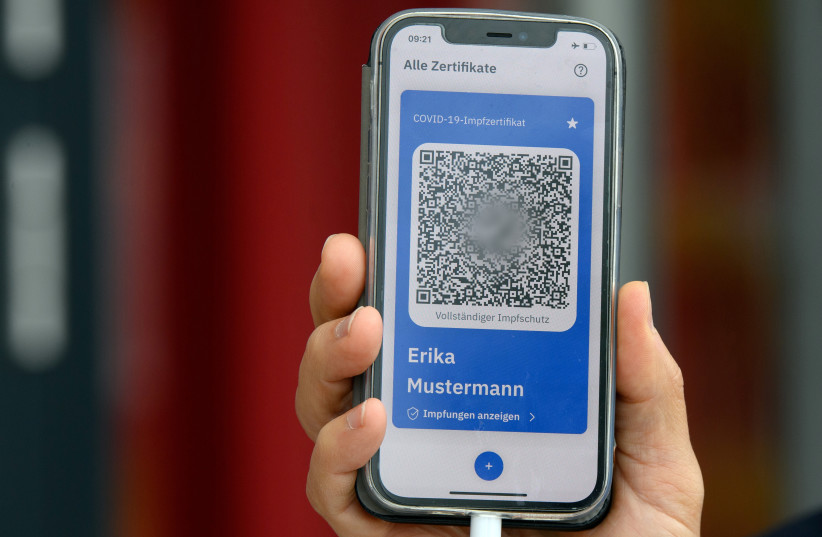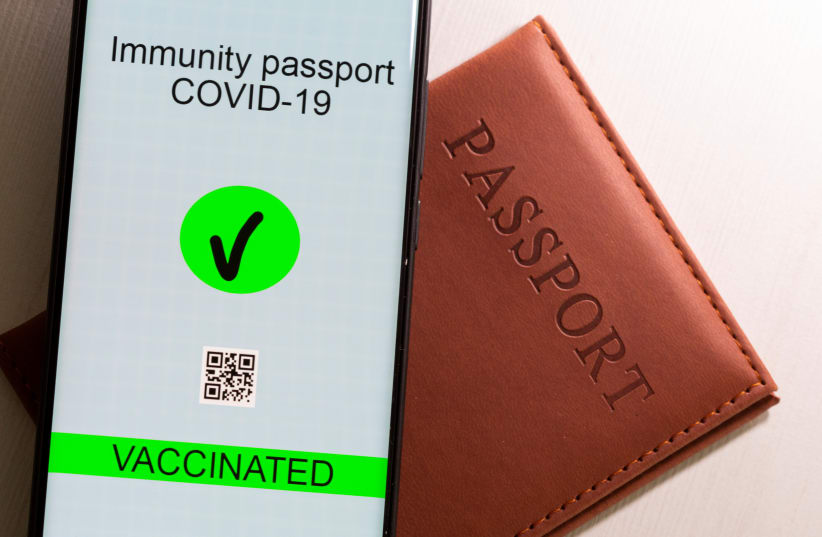There's a link between COVID-19 vaccine hesitancy and a perceived lack of free will over vaccine passports, according to a new study from Imperial College London.
A survey of 1,358 people was taken from across the UK and Israel and it was found that people who feel their sense of free will is stifled by government incentives such as vaccine passports are less likely to take the COVID-19 vaccine.
Published in the peer-reviewed journal Vaccines, the study highlights that public health incentives such as domestic vaccine passports may affect people's vaccination decisions in unintended and undesirable ways.
In the UK, 57.3% of adults are vaccinated, as well as 62.3% in Israel, yet 11% of eligible adults in the UK and 15% in Israel have yet to receive the first dose.
Unvaccinated groups undermine herd immunity, which requires meeting a threshold of vaccinated individuals to secure the safety of those who are unable to take the vaccine.
However, not much is known about factors at play in vaccine hesitancy.
Dr. Talya Porat, from Imperial's Dyson School of Design Engineering, and lead author of the study said, “Although reluctant groups are relatively small, they are not insignificant: some estimates suggest that vaccine refusal rates greater than 10 percent could significantly hinder herd immunity. If we want to ensure enough people get vaccinated to control the spread of SARS‑CoV‑2, we need to understand the factors that affect people’s decisions.”
The research team wanted to investigate the extent to which vaccine hesitancy relates to a person's psychological needs, and how a vaccine passport affects those needs.


The survey measured the needs of autonomy, competence, and relatedness, as well as the extent to which these needs were met or unmet.
They also asked how willing participants are (or were) to get vaccinated from 1 (not willing) to 5 (extremely willing).
Participants who felt their need for free will was unmet were particularly unlikely to say they would take the vaccine.
Dr. Porat said: “If public health incentives like vaccine passports 'frustrate’ psychological needs – for example by making people feel a lack of free will over their decisions – then they might paradoxically reduce people’s willingness to get vaccinated.”
The researchers suggest that this means that government pressure may cause people to get vaccinated now, but they may be less willing to receive a booster shot or a vaccine against new variants in the future.
Dr. Porat added, “For some, vaccine passports act as incentives to get vaccinated so they can move freely in society. Our results suggest that for others, the passports might increase resistance to vaccination or alter the motivation behind their vaccine decisions in ways that might have detrimental long-term consequences.”
